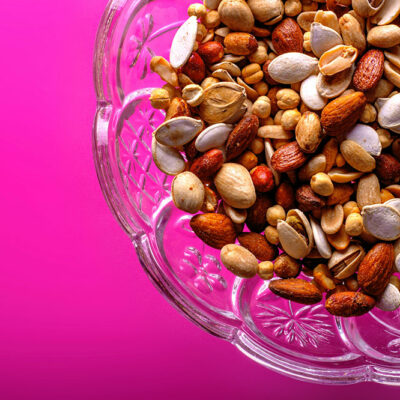
Identifying Common Food Triggers of Eczema
Eczema is a condition characterized by the inflammation of random patches of skin. These patches also tend to be itchy, red, cracked, and rough. In the country, over 10% of the population is affected by eczema.
Eczema cannot be fully cured as of date but can be controlled, and flare-ups can be prevented by following specific home care tips. You can avoid certain foods that may trigger eczema, such as those given below:
Cow’s milk
- People with eczema, especially children, can get easily triggered by cow’s milk.
- However, do not immediately eliminate milk and other dairy products from your diet without consulting your doctor.
- Doctors will generally recommend complete elimination only if the condition is too severe.
- Supplementary food will be recommended for the missing source of calcium, protein, and other nutrients in such cases.
Eggs
- Eggs are yet another trigger for children and babies.
- Eggs are commonly used in various forms, so it is essential to check the ingredients before consuming store-bought food. It is very easy to avoid a plate of scrambled eggs or an omelet, but you might not notice eggs in a cake, bread, or other dishes.
- Children mostly outgrow this allergy, so this avoidance is only temporary.
Peanuts
- Peanut allergy is quite a common allergy among people and even more so when eczema is affected.
- Test for peanut allergy if you experience a flare-up right after consuming a food item containing peanuts.
Soy
- Another eczema trigger is soy containing foods.
- They can worsen symptoms and cause flare-ups in people who have eczema.
- Read labels of products carefully as soy can unexpectedly be an ingredient in many food products such as chocolate, tea, etc.
Citrus fruits
- This delicious set of fruits contain high amounts of vitamin C and are generally recommended in a healthy diet due to their various benefits.
- However, when it comes to eczema patients, these fruits may cause a problem.
- This is due to the allergen in these fruits called balsam of Peru (Myroxylon pereirae).
Canned foods
- If the type of eczema you are suffering from is dyshidrotic eczema, nickel can cause severe flare-ups.
- Eating foods containing nickel can exacerbate the condition. It may cause symptoms like blisters to appear on your hands and legs.
- Nickel can be found in wheat, oat, rye, cocoa, legumes, etc.
- Most manufacturers use nickel in manufacturing cans that are used for canned food. Due to this, most canned food will have traces of nickel inside.
- Avoid canned food if you have eczema.
Tomatoes
- Tomatoes can be a potential trigger for most people with eczema.
- If you notice a flare-up right after eating a tomato or tomato-based product, consult a doctor and quit eating tomatoes.
Fish
- While most people believe that fish is an all-rounder when it comes to being beneficial for one’s health, other people believe it can worsen eczema symptoms.
- However, this may not apply to all patients. If your body is reacting adversely to fish, it probably is a trigger.
- If you don’t notice any changes after eating fish, you can continue to do so without worrying.


